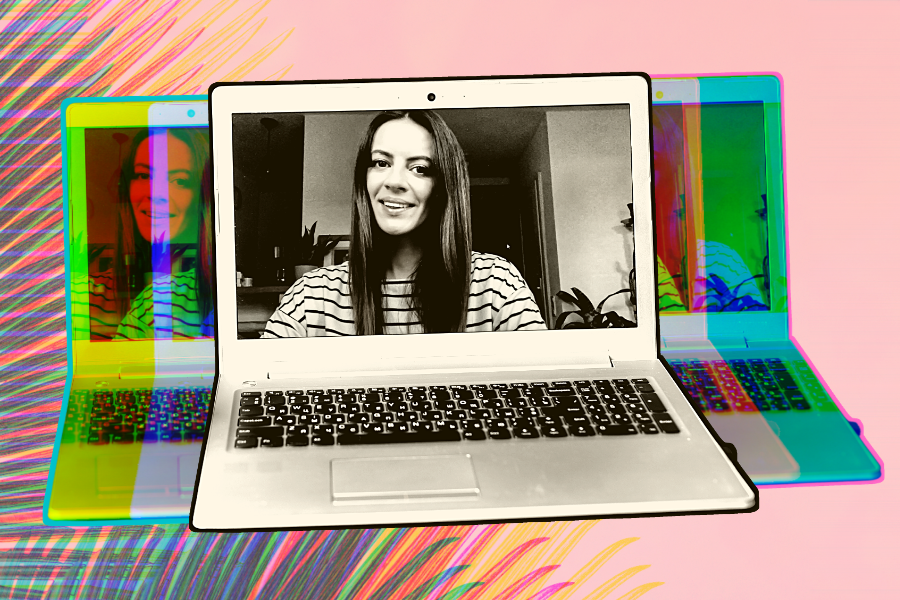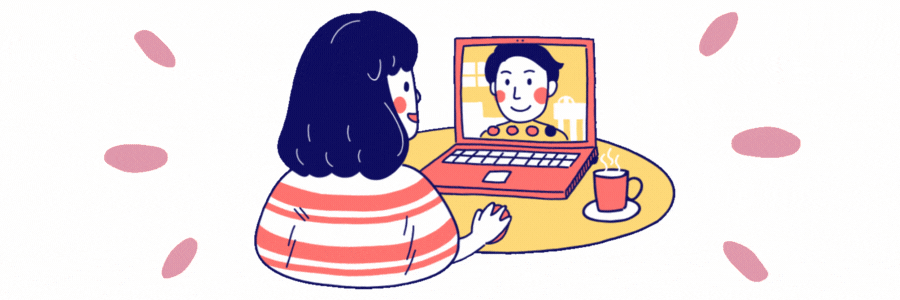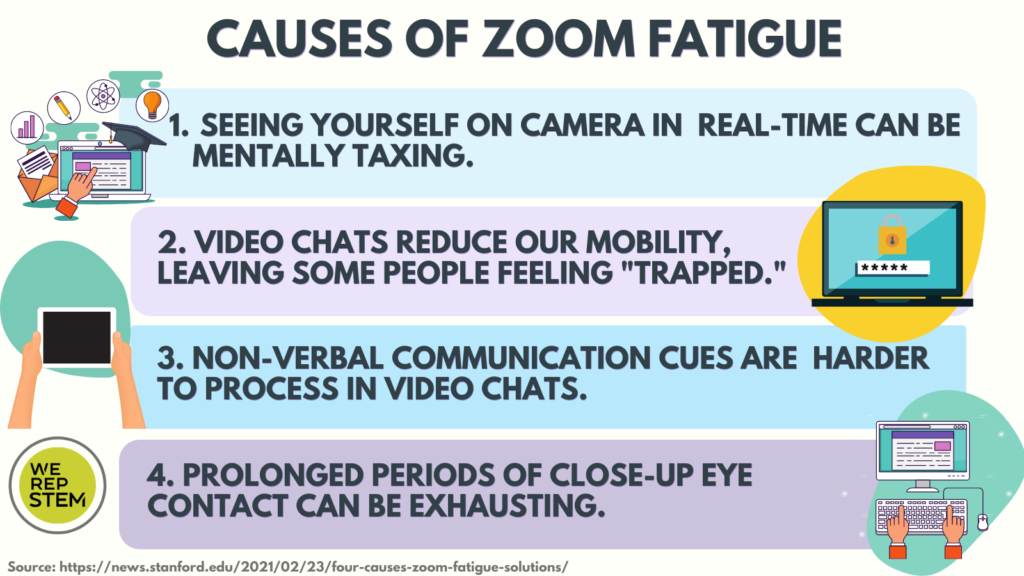New study attempts to demystify Zoom fatigue
Video calls are exhausting. Here are some of the reasons behind that and tips on how you can protect your mental health.

We’re more than a quarter of the way through 2021 and well over a year into a global pandemic, and for a lot of us, everything is exhausting. The news cycle is unrelenting. Unarmed Black people are still routinely killed by police officers. And many of us are isolated and working from home, removed from the family, friends, and group hobbies that boost our morale.
We are coming up with new ways to categorize and define our exhaustion. Zoom fatigue is one of them, a term that entered our vernacular in 2020.
A few weeks into the pandemic reports surfaced of people feeling extra tired after work meetings due, in part, to video conference calls. There are psychological reasons for this: experts say we tend to feel more drowsy after a video chat vs. one in real life because video calls require more focus, forcing us to work harder to process the visual cues we read effortlessly in the real world.
“Our minds are together when our bodies feel we’re not. That dissonance, which causes people to have conflicting feelings, is exhausting. You cannot relax into the conversation naturally,” Gianpiero Petriglieri, an associate professor at INSEAD who explores sustainable learning and development in the workplace, told the BBC.
Now, a new study has taken a deep dive into the mechanisms behind Zoom fatigue and has found women are more likely to be affected by it.
Turns out one of the drivers behind Zoom fatigue is “mirror anxiety,” which is the mental strain of having to look at yourself, often in an unflattering light and at unflattering angles, sometimes for hours a day.

Of the study’s 10,322 participants, 1 in 7 women, or 13.8 per cent, reported fatigue after Zoom calls, compared to 1 in 20 men, or 5.5 per cent.
It was also found women felt “trapped” by having to stay in the camera’s field of view and that women tend to have longer meetings than men and take fewer breaks, the study says.
But how tired you may feel depends on several factors. Introverts, younger people, and individuals who have higher levels of anxiety seemed to report the highest levels of fatigue.

The study says white people of all genders tend to feel less fatigued than “other categories of race,” except for “those identifying as Native Hawaiian, Pacific Islander or other,” but we must point out that the sample of non-white participants is small. It’s hard to say with confidence if Black men are more likely to be impacted than white women, given the demographic breakdown.
According to the paper:
And while the study concludes women are the most common sufferers of Zoom fatigue, we can’t say that with 100 per cent certainty, because the study largely overlooks non-binary individuals.
From a gender perspective:
The paper attempted to replicate the observed gender effect in their 10K+ sample with a new sample of 788 participants; and there is more Black, Asian, and Hispanic/Latinx representation there at 10.5 per cent, 9.1 per cent, and 4.8 per cent respectively, with 68.8 per cent of the demographic identifying as white.
According to the U.S Bureau of Labor and Statistics, Black and Asian individuals account for 13 per cent and 6 per cent of the overall U.S. workforce respectively.
That said, if you are feeling an energy zap from a seemingly never-ending parade of video calls, there are things you can do to protect your mental health.
In an email with We Rep STEM, Wendy Ingram, Ph.D., Co-Founder and Chief Executive Officer of Dragonfly Mental Health (Dragonfly) recommends creating healthy routines and maintaining them.
Other tips?
“One: Turn off self-view. Two: If you are in a position of power, evaluate if you really need a meeting. Three: Go outside, if possible,” Dr. Ingram says.
“Not everything has to be a video call, phone calls or camera off are okay,” Mary Huff, Ph.D., Consulting Team Co-Lead at Dragonfly adds. This is especially important to keep in mind given the pandemic isn’t going anywhere anytime soon, making it crucial to find something that works for you and sticking with it.
“There’s no magical ready-made solution,” Olga Vvedenskaya, MD, Ph.D., Co-Founder & Chief Administration Officer at Dragonfly says when it comes to beating Zoom fatigue.
“This is unfortunately how the world is now.”
But that doesn’t mean you can’t protect yourself. According to the CDC, tips for coping with pandemic-related anxiety that can contribute to Zoom fatigue include:

Like what you just read? Support We Rep STEM so we can keep making rad content.
